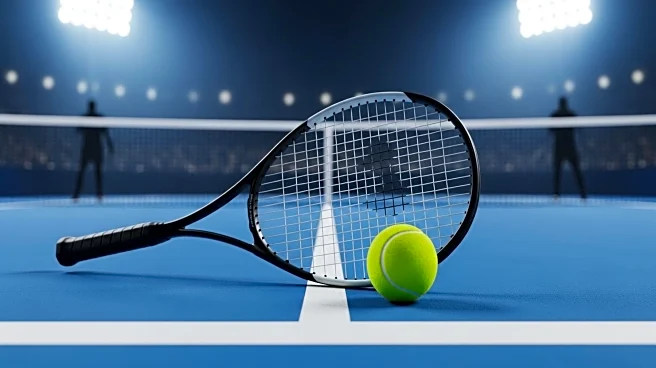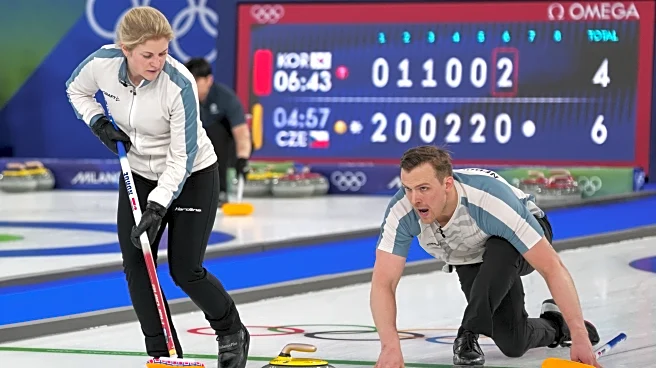What's Happening?
Jannik Sinner, the top-ranked tennis player, successfully overcame a challenging match against Canadian Denis Shapovalov in the third round of the US Open. Despite losing the first set 5-7, Sinner rallied to win the next three sets 6-4, 6-3, 6-3, securing his place in the fourth round. Shapovalov initially led in the third set, but Sinner managed to save a break point and won nine consecutive games to turn the match in his favor. Sinner's victory continues his impressive record on hard courts, having not lost a Grand Slam match on this surface for two years. He will face either Alexander Bublik or Tommy Paul in the next round.
Why It's Important?
Sinner's victory is significant as it reinforces his position as the world number one and highlights his resilience and skill in overcoming difficult situations. This win also underscores his dominance on hard courts, a crucial aspect of his career. For Shapovalov, the match was a testament to his potential, despite the loss, as he demonstrated the ability to challenge top players. The outcome of this match impacts the dynamics of the tournament, with Sinner advancing and maintaining his status as a formidable contender for the title.
What's Next?
Sinner is set to play against either Alexander Bublik or Tommy Paul in the next round, which will be another test of his capabilities. The upcoming matches will determine if Sinner can continue his winning streak and possibly secure another Grand Slam title. For Shapovalov, the focus will be on building consistency and learning from this experience to improve his performance in future tournaments.
Beyond the Headlines
Sinner's performance highlights the mental fortitude required in professional tennis, as he managed to stay focused and turn the match around despite initial setbacks. This aspect of the sport is crucial for players aiming to maintain top rankings and achieve long-term success. Additionally, the match reflects the competitive nature of the US Open, where even top players face significant challenges from their peers.











